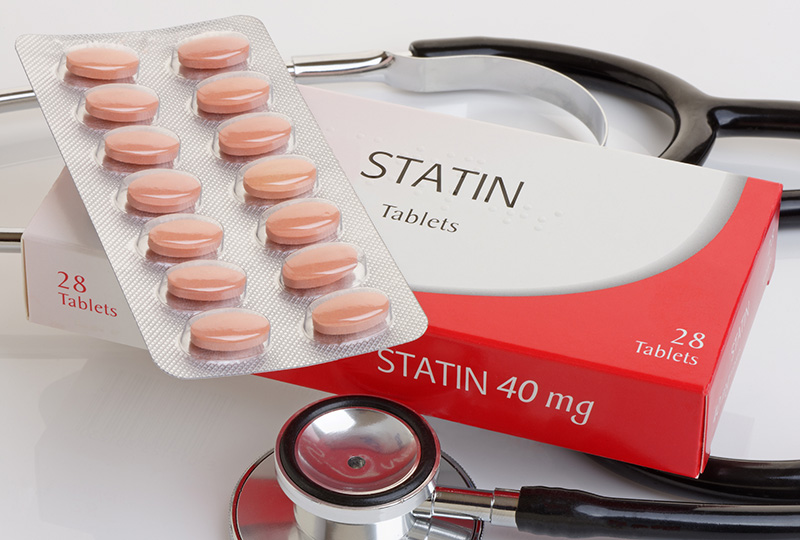Not long ago, a medical reporter friend of mine, Lynn Allison, asked me to comment on a recent article in The Daily Mail, the title of which was:
MORE experts claim statins are a waste of time.
The article went on to say that studies show that cutting cholesterol fails to slash heart risk. (That is correct.) It said that millions were being mislead about the side effects of the popular cholesterol-lowering drugs known as statins (also correct). And that the side effects of these drugs were far more common than studies suggested. (That too, is correct.)
Lynn asked me for a comment. This is what I said.
This new article is a wonderful development, but not wholly unexpected. My book with cardiologist Dr. Steven Sinatra— The Great Cholesterol Myth— references dozens and dozens of studies which cast serious doubt on– or in some cases totally refute– the notion that cholesterol causes heart disease.
Dr. Sinatra and I listed several peer-reviewed studies that showed that more than half the people admitted to hospitals for cardiovascular disease have normal “bad” cholesterol (less than 100 LDL), and just under half had desirable levels of “good” cholesterol (more than 40 HDL). Not only doesn’t cholesterol cause heart disease, it’s a lousy PREDICTOR of it!
Yet the accepted “conventional” wisdom is that lowering cholesterol lowers the risk of heart disease. It does not. As i said on Dr. Oz, “Trying to lower the risk of heart disease by lowering cholesterol is like trying to lower the risk of obesity by taking the lettuce off your Big Mac”.

Interestingly, cholesterol skepticism is NOT a new position— George Mann, one of the principle investigators of the long-running Framingham study of heart disease— called the notion of cholesterol causing heart disease “the greatest scam ever perpetrated on the American public”.
And our book— The Great Cholesterol Myth— was hardly the first to point out the difference between the data and the recommendations. The Great Cholesterol Con, The Cholesterol Myths, Cholesterol Clarity, The Cholesterol Delusion, The Cholesterol Conspiracy and dozens of other popular and scholarly books have made the case before us, and undoubtedly others will continue to make it after us. An excellent review article— Saturated Fat and Cardiovascular Disease: The discrepancy between the scientific literature and dietary advice, published in the journal Nutrition (Feb, 2012) concluded that “results and conclusions about saturated fat in relation to cardiovascular disease, from leading advisory committees, do not reflect the available scientific literature”.
Finally, there’s the question of statin drugs and overmedication in general. The wonderful John Abramson of Harvard Medical School, has been speaking out for the better part of a decade on the overuse of ineffective medications, and has been particularly critical of statin drugs. Statin drugs have multiple serious side effects from memory loss to fatigue to loss of energy and libido, to serious muscle pain. Yet they are prescribed randomly to anyone with an “elevated” cholesterol level, even though study after study shows little benefit to lowering cholesterol. (Interestingly, in the Framingham study, those with the highest cholesterol actually lived the longest!) The studies the drug companies point to showing that “statins save lives” usually do not hold up under close examination. You may see a SLIGHT reduction in heart attacks but you will see a corresponding INCREASE in cancer and diabetes. And several peer-reviewed studies have shown a significant increase in diabetes among statin users.
And why don’t we know more about these statin side effects? Simple. Because doctors usually don’t report them.
An exhaustive study, by Dr. Beatrice Golumb at Stanford, showed that 65% of docs do not report statin side effects because they don’t believe their patients. (You can read the actual study here.) The average patient will come in and say something like, “Hey doc, ever since you gave me this Lipitor, I’ve been forgetting things left and right” and the doc will say, “No, Mr. Jones, that’s just the mild cognitive impairment that comes with age, nothing to worry about, definitely not coming from the statin drug”.
Meanwhile, statins (and lowering cholesterol) are a 31 billion dollar-a-year business.
As the great American writer, Upton Sinclair, once said: “It is difficult to get a man to understand something, when his salary depends on his not understanding it”.














This is interesting. So if cholesterol is not the main cause of heart disease as the drug companies push us to believe, then what is? Some studies are suggesting that it’s inflammation. Is that true? Or is it other factors? We all hear that the usual culprits – overweight, smoking and hereditary weaknesses – add to the risk but they don’t always result in heart disease. It sounds like nobody really knows for sure. Can you comment?
My understanding is that the HbA1c test has the best correlation with future outcomes, so that suggests high carb consumption is bad. Clotting appears to be a major factor, so foods that discourage clotting might be useful (garlic, oily fish, …)
Thanks so much for the clear info. I’m passing this onto my doctor who is always pushing statins. My Dad has developed memory problems and Diabetes type 2 since taking statins. I’ve given him CoQ10 to take every day so at least he has most of his former energy back.
Is there a number or numbers that ever indicate taking statins such as total cholesterol over 300 hundred? Mine is!
Mmmmm……sound interesting but my question is if the cholesterol is not a leading course for heart disease what is the course? .